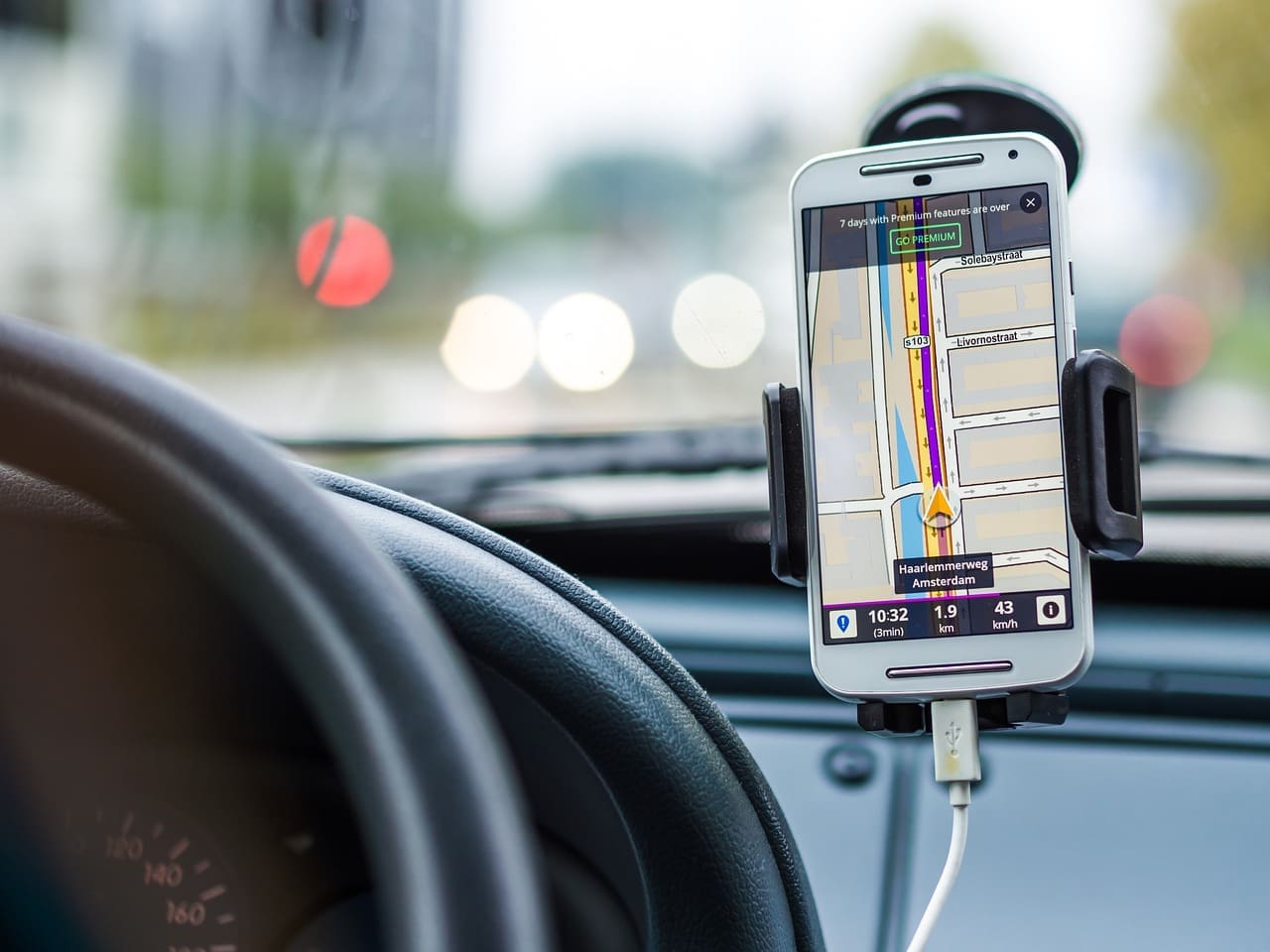
The automotive industry has undergone some massive changes throughout its lifetime, but none as dramatic as the effect mobile technology has had on driving. Around a decade ago, driving was somewhat of a solitary activity where drivers could shut the doors and shut themselves off from the outside world. Today, mobile technology is edging closer and closer towards total connectivity.
As drivers and consumers, we’re determined to stay connected regardless of whether we’re at home or in our cars. The average driver makes use of mobile technology all the way from GPS systems, to travel apps and online taxi services like Uber. Mobile technology is only set to bridge the connectivity gap even further, as new ways are found to incorporate the Internet of Things into our cars.
Directions on demand: SAT NAV travel Apps:
One of the main areas that mobile technology has influenced our driving is map navigation systems. Not so long ago, satellite navigation systems had replaced hand held maps, but in recent years travel apps have begun to replace those as well. More and more users have been pushing their TomTom devices to the side in favour of travel apps on iOS and Android. In fact, even TomTom have started their own app to cater to the demand for travel apps.
Its much easier than ever before for users to travel to their destinations with travel apps, particularly when these have become more cost effective than standalone SAT NAVs. Anyone who owns a smartphone can simply open an app and start typing their destination before being guided each step of the way.
Automakers have become software experts:
The majority of cars in production today not only feature cutting edge aerodynamic bodywork, but state of the art software as well. Automakers have had to become software experts in order to produce high quality onboard computer systems, which have turned cars into mobile data centers. Many cars have onboard diagnostics systems, trained to notify the user if there is a fault.
To make things more complicated, automakers have to ensure patches and software updates are frequently available so that the onboard systems function correctly. This is a massive departure from how cars were produced 10 years ago, let alone 50 years ago! As this trend continues we can only expect to see companies try to turn mobile data into valuable new insights.
We’re constantly connected:
One of the largest changes brought about by mobile technology is the level of in-vehicle connectivity that we experience on a daily basis. If we take our smartphones and devices into our cars, we can explore the web and message others at our leisure. The only constraint on our connectivity is data signal, but this steadily changing as well.
Many automakers have sought to integrate our personal mobile usage with their onboard systems. One example comes in the form of an app for the BMW i3, which allows the user to check the battery capacity of the car whilst docking into a recharging station. We’re seeing more and more companies replicate this style of service utilizing technology to increase the level of mobile integration within our vehicles.
Mobile technology has made us more connected, and more efficient:
If mobile technology has changed anything it’s changed the way we experience driving. Today, when we get behind the wheel we have much more options than ever before. We can use a travel app to choose our route and we can interact with onboard computers and mobile devices to run diagnostics.
These days mobile technology does not only keep drivers connected to these options at all times, but also help to simply use the communication features of your phone, e.g. read messages on interactive onboard tablets.
In future, the increase of connectivity is going to come hand in hand with a growth in autonomous driving. As we edge closer towards eco friendly driving we expect more from our vehicles. Thus far, mobile technology has aided our navigation and connection to the outside world, but we still have a long way to go in terms of autonomy. Right now it’s difficult to stay fully connected whilst focusing on the road ahead, but that will all change with the creation of self-driving vehicles.







